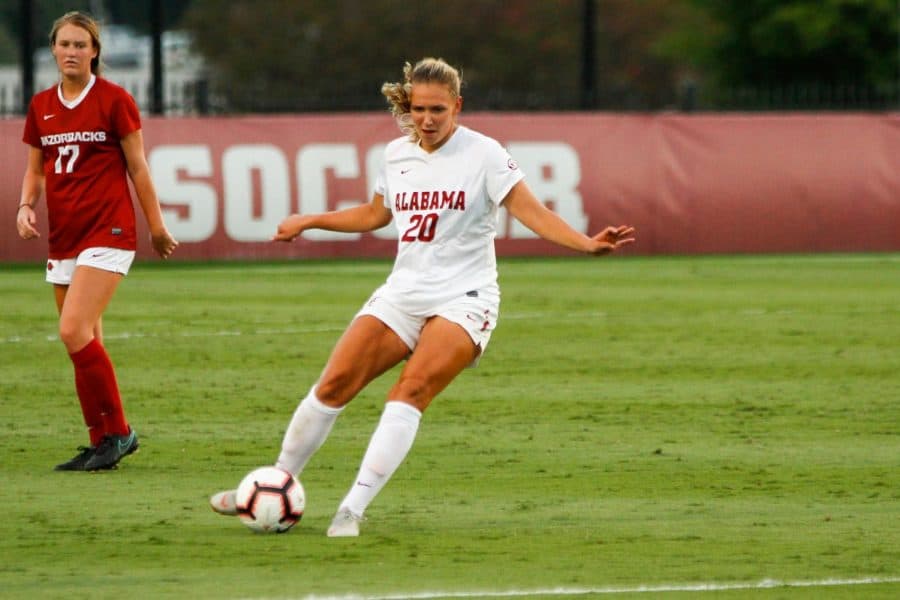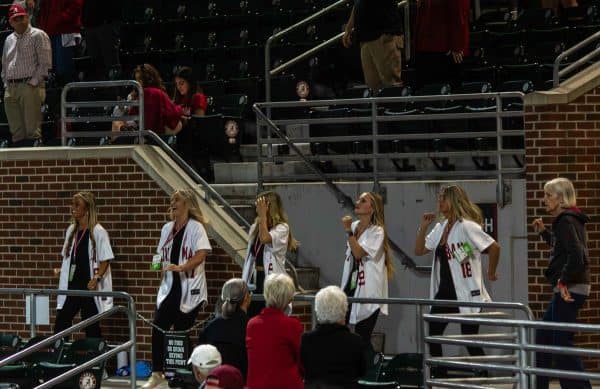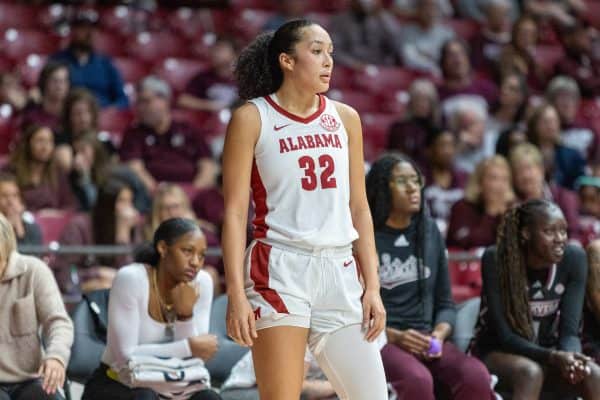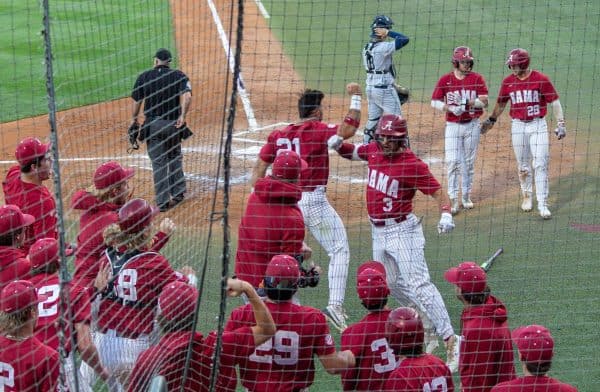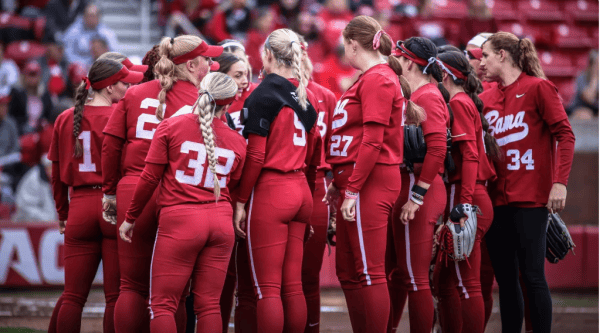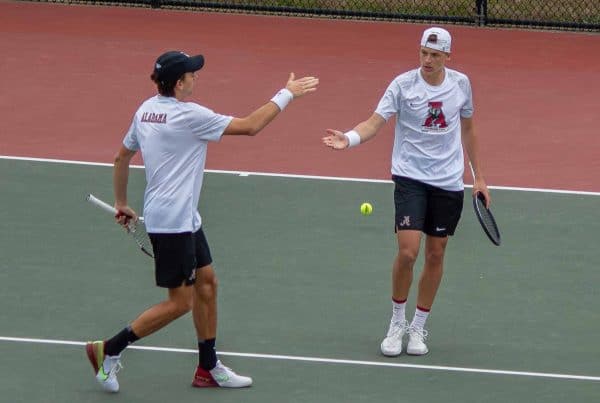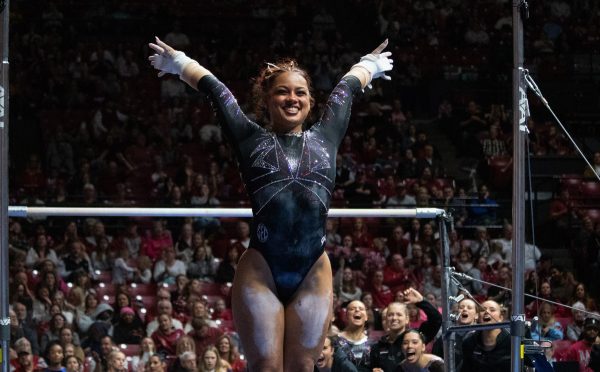Maartensson leaves home to continue dream
September 27, 2018
Adapting to life at The University of Alabama can be a turbulent experience for freshmen. Moving away from home and saying goodbye to friends, family and loved ones is a difficult but necessary part of the experience. For many out-of-state students, adjusting to life in Alabama is a process that can take some time.
Add in a 10-hour, 4,774-mile flight, various culinary distinctions and balancing the rigors of being a student athlete, and being a freshman at Alabama becomes a daunting task. With the addition of a language barrier, it can seem nearly impossible.
Most new students at the University don’t have to deal with those last few challenges. Christina Maartensson, however, did.
Maartensson, a central midfielder for the Crimson Tide, is from Stockholm, Sweden. In the midst of her senior season, Maartensson has come a long way in adapting to life in the United States as well as maturing in her play. Maartensson came to Alabama to pursue her dreams of attending university while continuing to play the game she loves.
“In the beginning, everything was new, everything was hard,” Maartensson said. “I was just tired all the time. You just have to adapt to the new environment. Soccer was different than in Europe of course. I had to learn how to play college soccer. It was a much more physical game.”
To call it a culture shock would only begin to describe the changes and experiences that Maartensson endured during her first year at UA. Of the things that troubled her most, the first that came to mind is one that Southerners would find appalling.
“I do not eat fried food,” Maartensson said. “I do not like fried food. I was just shocked that people were eating like subs and sandwiches for lunch when I was eating chicken and fish and potatoes every lunch and dinner. People were just eating what they wanted all the time, it was so weird.”
Her next complaint was one that Alabama natives can relate to.
“Oh my god, the weather,” Maartensson said. “My asthma got worse. It was so bad the first year getting used to this. I got sick all the time. I’m finally used to it but now I’m a senior.”
And her other biggest hurdle was one many out-of-state students have experienced firsthand.
“My roommate freshman year was Emma Welch,” Maartensson said. “Her accent, she’s from the Deep South. I did not understand her at all and she did not understand me. It was so funny. One of the hardest things was with the accents people have in the South.”
Despite the tough transition, Maartensson has found her fit within the team. Her midfield partner, sophomore Taylor Morgan, described her as the type of person on the team that when she speaks, everyone makes sure to listen.
“She’s like a big sister,” Morgan said. “She’s easy to talk to, she listens. She just really cares about this program and you can tell. To go to another country and to play every day and give everything you have and not see your parents for so long. That’s how you know.”
The relationship that Maartensson and Morgan have developed in the center of midfield has been critical for the Crimson Tide to play the brand of soccer that coach Wes Hart asks of them. While Morgan is a more energetic and lively disruptor in the midfield, Maartensson provides the poise and precision required to settle the game down.
“She just knows the game really well and she can distribute the ball better than anyone I’ve played with,” Morgan said.
But the development that Maartensson has undergone to get to this point has been monumental.
“I can’t think of a player in my time that I have seen a better growth from over four years,” Hart said. “I think it was a huge culture shock for her to come from Sweden. The climate, the social aspect, the style of soccer, everything about it was the opposite of what she was used to. Two years ago, I would have never guessed that she would be starting a majority of games and contributing like she is.”
As Maartensson looks to wrap up her senior season, the barriers that had tormented her early on have dissolved. The fried foods are tolerable, 80 degrees isn’t that hot and Southerners do actually speak English.
That 4,774 miles isn’t as far as it once seemed.

